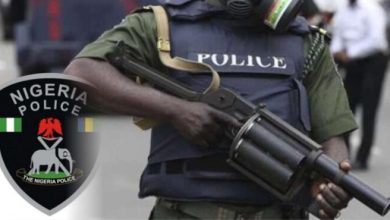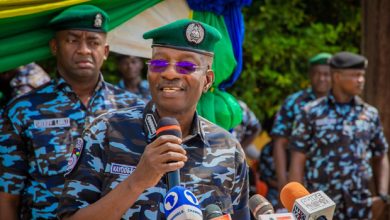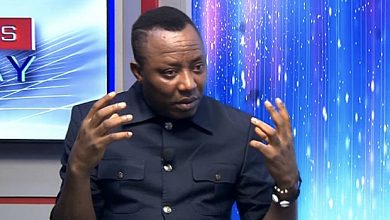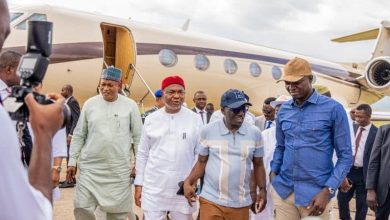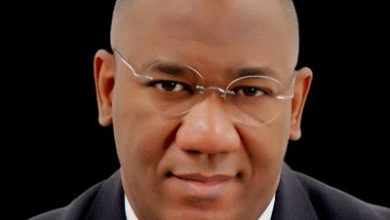Will Nigerians Trust the ADC-Led Coalition Ahead of 2027?
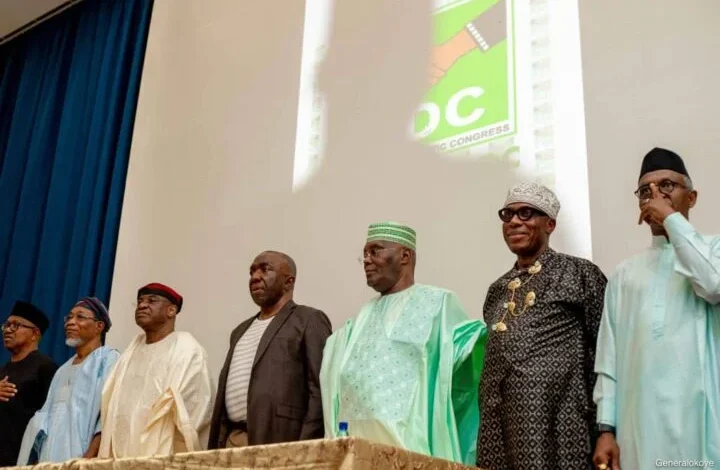
The formation of the ADC coalition has raised discussions about whether Nigerians can trust this new alliance; some have questioned whether it is just “same faces, new platform.” Similar coalitions, like the APC’s merger of the CPC, ACN, and ANPP, have been effective in the past; yet, others have failed because of underlying conflicts and mistrust. Will the ADC coalition face the same difficulties that have beset earlier coalitions, or can it demonstrate that it is different?
In Nigerian politics, coalition building has been a typical occurrence, with powerful politicians and different political parties joining forces to accomplish shared objectives. The All Progressives Congress (APC) was formed in 2013 as a consequence of a merger of several political parties, including Tinubu’s ACN, former President Buhari’s CPC, ANPP, and a PDP group headed by well-known politicians including Atiku Abubakar, Rabiu Kwankwaso, Bukola Saraki, and Rotimi Amaechi. When former President Muhammadu Buhari defeated Goodluck Jonathan in March 2015, the PDP’s 16-year dominance came to an end thanks in large part to this partnership.
Three main camps came together to form the All Progressives Congress (APC): Ogbonnaya Onu’s All Nigeria Peoples Party (ANPP), Asiwaju Bola Tinubu’s Action Congress of Nigeria (ACN), which is well-known for its strong regional presence and mobilization efforts; Muhammadu Buhari’s Congress for Progressive Change (CPC), which was founded in 2006 by Muhammadu Buhari and his political allies and was originally known as The Buhari Organization (TBO); and Buhari’s Congress for Progressive Change (CPC).
Mallam Nasir el-Rufai, Abubakar Malami SAN, Chibuike Rotimi Amaechi, and Rauf Aregbesola were among the many politicians who joined the APC. These people rose to prominence in the Buhari administration, influencing the policies and course of the nation. Over time, though, a few of these people have defected from the APC and joined other parties, such as the African Democratic Congress (ADC).
Former Vice President Atiku Abubakar, the PDP’s presidential contender in the most recent elections, has recently formed a new coalition. Other prominent politicians are part of this coalition, including former Labour Party presidential candidate Peter Obi, former Senate President David Mark, former Rivers State Governor and former Buhari administration Minister Rotimi Amaechi, and the founding chairman of the APC, John Oyegun. Nigerians have been questioning this coalition’s intentions beyond seizing power.
Everyone’s main concern is if the current ADC coalition differs from the 2014 APC coalition. Is it reliable? Many believe that it is not a sincere attempt at governance, but simply another illusion, as long as the same faces are involved. It is feared that this alliance would be more concerned with seizing power than with resolving the country’s issues.
Read Also: $747 M Syndicated Loan Landed for Lagos–Calabar Coastal Highway Project
The circumstances surrounding their formation are one of the main distinctions between the ADC coalition today and the APC coalition in 2014. In reaction to the perceived shortcomings of the PDP government, the APC coalition was established to challenge the PDP’s hold on power. With the APC currently in power and dealing with its own set of issues, the ADC coalition is being established in a distinct environment.
The coalitions’ makeup represents yet another distinction. The ADC alliance seems to be primarily made up of those who had previously been members of the APC or other parties, whereas the APC coalition brought together a varied set of lawmakers. This has sparked debate over whether the coalition is actually dedicated to change or is just bringing together old acquaintances.
Although the APC succeeded in overthrowing the PDP, it has had many difficulties since taking office. Internal strife has plagued the party, and several of its most important leaders have left. Whether the ADC coalition can accomplish its goals and offer a viable alternative to the APC is still up in the air.
Nigerians would need to consider the coalition’s policies and dedication to governance in addition to the people involved when assessing the ADC coalition’s credibility. Will it be motivated by personal interests or will it put the needs of the Nigerian people first? Time will tell.
A national dialogue over the necessity of new leadership and a new method of governance has been spurred by the formation of the ADC coalition. Nigerians are anxious to see if this coalition can fulfill its commitments and offer the nation a brighter future.
In the end, the ADC coalition’s ability to relate to Nigerians and show a sincere interest in resolving the country’s issues will determine its level of success. It might gain Nigerians’ trust and offer a strong substitute for the APC if it can accomplish this. If it doesn’t work, though, it might be dismissed as simply another hoax, and Nigerians might still have to put up with bad leadership.
In order to solve urgent national challenges like social welfare, economic growth, and climate change, the Christian Democratic Union (CDU) and Social Democratic Party (SPD) established a grand coalition in Germany in 2018. In order to ensure stability and advancement in the nation, this coalition brought together two significant parties with disparate ideologies to work toward shared objectives. They improved healthcare services and increased the generation of renewable energy through collaborative governance, among other programs that benefited the general populace.
The Bharatiya Janata Party (BJP), the leader of the National Democratic Alliance (NDA) coalition, has played a key role in advancing development initiatives and economic changes in India. The NDA has maintained a stable administration and put policies in place that support social welfare, infrastructural development, and economic progress by uniting different regional parties. Addressing some of the nation’s most urgent issues, like poverty and inequality, has been made easier by the coalition’s emphasis on inclusive growth and community involvement.
By putting community involvement and democracy first, the ADC alliance in Nigeria can learn from these examples. The coalition must show a genuine commitment to giving the people back control and go beyond empty press announcements if it is to win back the confidence of the general public. This can be accomplished by putting in place laws that support accountability, transparency, and inclusivity as well as by making sure that decision-making procedures are participatory and decentralized.
Because they have witnessed the same faces and interests control both parties, Nigerians may be wary of putting their trust in another coalition, like the ADC, following the APC’s alleged shortcomings. As a result, there is now less faith in these politicians’ capacity to bring about significant change. Nigerians are distrustful of yet another alliance that may make promises of change but fall short because to the APC’s failure to keep its pledges and handle urgent problems including economic stagnation, insecurity, and corruption. The ADC alliance would need to show a distinct departure from the past, a sincere dedication to accountability, transparency, and the well-being of the Nigerian people, as well as a readiness to put the demands of the general populace ahead of the interests of the ruling class, in order to win over trust.
The ADC coalition seems to be a gathering of well-known figures from different parties, including former APC members, who may be more interested in seizing power due to a combination of ideological, personal, and political interests. In contrast, the APC was founded as a merger of opposition parties to challenge the PDP’s hold on power, motivated by a desire for change and a need for a new alternative. Their approaches to governance and policy-making may be influenced by these differences in motivation.
Another noteworthy distinction between their beginnings is that the APC was established with a clear set of objectives and organized leadership after a formal merger of multiple parties, including the ACN, CPC, and ANPP. However, the ADC coalition appears to be a loose coalition of people from several parties who are bound together by the desire to overthrow the incumbent government, while they may be split along ideological, interest, and agenda lines. This discrepancy could affect their ability to fulfill commitments, decision-making procedures, and cohesiveness.
While the recently adopted ADC is still fighting an unhealed political illness, other parties such as the PDP, NNPP, Labour Party, and SDP are negotiating internal dynamics. The party’s internal issues have become even more complicated as a result of a recent court lawsuit that asked for some factions inside the party to remove the temporary executives.
Although opposition parties have persisted in accusing the APC-led government of infiltrating their ranks, the president has insisted that he is powerless to address the problems facing opposition parties since he is a democrat. In addition, he has denied rumors that he would make Nigeria a one-party state, reaffirming his support for democracy and letting each party handle its internal problems on its own.
Given worries that the ADC coalition would be “same faces, different platforms,” many Nigerians are wondering if they can trust it. Some fear that the ADC’s membership of well-known personalities from other parties could be a case of old wine in new bottles rather than a sincere attempt to effect change. The party’s legitimacy and capacity to garner sincere support from Nigerians looking for significant alternatives may be impacted by this impression.
To thrive, the ADC must put unity and group goals ahead of individual interests. The alliance can use its varied assets and experiences to create a powerful, unified movement that can oppose the ruling party and bring about constructive change by putting aside personal aspirations and cooperating to achieve a shared objective. The coalition runs the risk of disintegrating and failing if individual interests take precedence, which would make it more difficult for it to keep its pledges to the Nigerian people.
The public will continue to be skeptical of another alliance of interests unless they witness concrete proof that power has been restored to them. Instead of advancing the interests of the elite, the ADC needs to establish a new politics that puts the needs and goals of the people first. Although the alliance faces a challenging task, it also has a chance to influence Nigeria’s destiny and provide the nation a new course. Nigerians are definitely keeping a close eye on it, regardless of whether it succeeds or fails.

